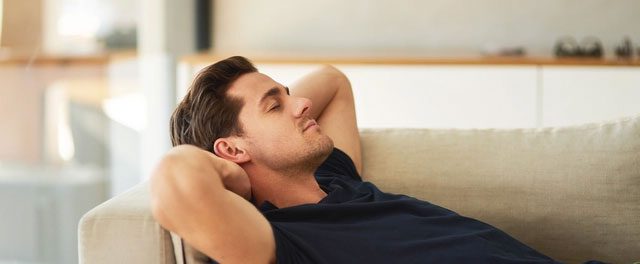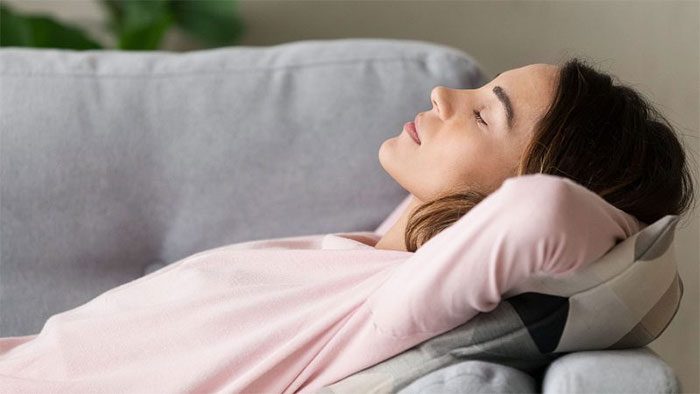A Study Examines the Impact of Short Naps on Health and Finds Numerous Amazing Benefits.
A new study from Singapore has explored the effects of short naps on health and discovered that these naps offer numerous benefits for mood, memory, and alertness.
In fact, the habit of napping is a tradition in many Southern European and South American countries, often referred to as siesta (meaning a short sleep in Spanish). Napping is also a common practice in several other Asian countries such as China and Vietnam.
Walking into an office in Vietnam during lunchtime, you will easily encounter scenes of employees napping at their desks or on the floor. Many people say that napping helps them work better and feel more alert in the afternoon.
New Findings on the Benefits of Napping
The recent study was conducted on 32 young adults in Singapore. Researchers examined the mood and alertness of these individuals after four different napping/non-napping conditions.
Dr. Ruth Leong from the National University of Singapore explained: “After a normal night’s sleep, the 32 young adults experienced four experimental conditions – staying awake during lunch, napping for 10 minutes, napping for 30 minutes, and napping for 60 minutes – on different days.”

Short naps can enhance memory and improve mood.
The results showed that napping for 10 to 60 minutes was beneficial for health compared to not napping at all. Specifically, short naps can enhance memory, improve mood, and increase alertness for at least four hours afterward.
Dr. Leong added: “Mood, sleepiness, and cognitive performance were measured at intervals of 5, 30, 60, and 240 minutes after waking up to assess the benefits of napping. The effects of napping on memory were also examined.”
“As a result, compared to not napping, naps ranging from 10 to 60 minutes showed clear benefits. Effects such as improved mood and alertness lasted up to 240 minutes after napping, indicating that even a brief 10 minutes can be beneficial,” Dr. Leong stated.
Proven Benefits of Napping
According to the health website Healthline, a short nap can enhance both mental and physical health. Here are the proven benefits of napping:
1. Improved Cognitive Function
Napping helps you feel more alert. In return, your brain will operate more efficiently.
Studies also show that short naps reduce levels of adenosine in the brain. Adenosine is a neurotransmitter that promotes sleep and plays a role in cognition.
2. Enhanced Memory
Short naps can reinforce memory. A good nap right after learning something new seems to help us retain that information.
In a small 2019 study, researchers divided 84 college students into three groups. All spent 90 minutes learning about crabs. Then, one group napped for an hour, the second group continued studying for an hour, and the last group watched a one-hour movie.
Afterward, all groups learned about crabs for the last 90 minutes. After a 30-minute break, they took a test on what they had learned. A week later, they also took another test.
In the first test, the napping group and the group that studied for an extra hour performed better than the movie group. By the second test, the napping group had outperformed all other groups.
3. Boosted Immune System
Regular napping can benefit the immune system.
Natasha Fuksina, an internist in the United States, said: “Sleep deprivation increases inflammatory markers and weakens the immune system. Napping over a few days can improve immune function and cellular activity.”
For example, in a small 2015 study, 11 men who slept only two hours a night took a 30-minute nap the next day and then enjoyed a full night of sleep that night. The results showed that the short nap helped reduce levels of inflammatory cytokines and norepinephrine, a substance that regulates immune response.
How Long Should You Nap?
The answer is: Don’t nap too little or too much.
Jeff Rodgers, a certified sleep expert from the American Academy of Sleep and Breathing, said: “For most people, a nap lasting 20 to 30 minutes is ideal for boosting alertness and focus.”
“Waking up after a 30-minute nap ensures you are in the early stages of the sleep cycle and won’t feel groggy upon waking.”
Dr. Alex Dimitriu, another sleep expert, indicated that longer naps may affect nighttime sleep quality.
He stated: “Some people may fall into a deep sleep during the day and struggle to sleep well at night.”
However, if you are genuinely fatigued from lack of sleep, Rodgers mentioned that a nap of 90 minutes can be effective. He explained: “This length of nap ensures that a full sleep cycle has occurred, helping to avoid grogginess.”
How to Have a Great Nap?
To ensure you have the best and most beneficial naps, follow the advice from sleep experts like Rodgers:
- Nap between 1 to 3 PM. “This is the natural drowsiness period for humans. If you try to nap earlier than that, your body may not be ready to sleep, and if you nap later, it may disrupt your nighttime sleep,” Rodgers explains.
- Create a sleeping environment similar to nighttime: Keep the sleeping environment as dark, cool, and quiet as possible. Try using an eye mask or white noise machine.
- You can nap on a couch instead of in bed. Dr. Lauren Broch, a sleep psychologist at Northwell Health, USA, said: “You shouldn’t lie too comfortably and sleep for too long, as this may make it hard to wake up.”
Who Should Avoid Napping?

Not everyone should nap.
Although napping has certain benefits, it is not for everyone.
Dr. Rodgers advises you to seriously consider your napping habits.
“Do you need to nap every day to feel alert? Is napping a planned activity, or are you just dozing off at your desk?” the doctor questions.
“Frequent daytime fatigue can be a sign of serious sleep disorders, such as sleep apnea or insomnia, that need to be evaluated by a medical professional.”
Dr. Broch added that if you have been diagnosed with insomnia, you typically should not nap unless necessary for safety reasons, such as staying alert while driving or operating heavy machinery.
Conclusion
Short naps can support our mental health, help us work more efficiently, and may even boost immune function.
However, many people want to know how to nap without feeling groggy upon waking. The key is to nap for 20 to 30 minutes and choose a sleeping environment similar to nighttime.
A gentle alarm clock can also help wake you from a short nap feeling energized and more alert.


















































